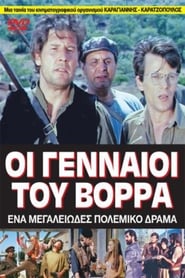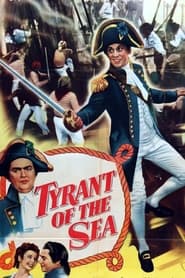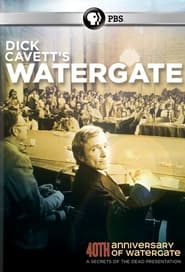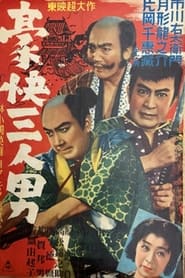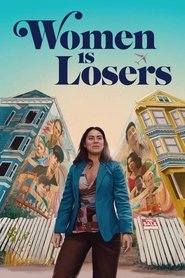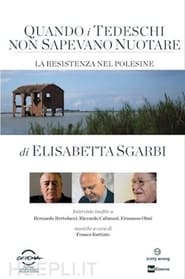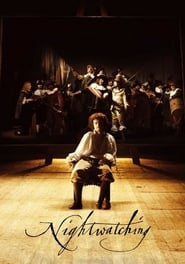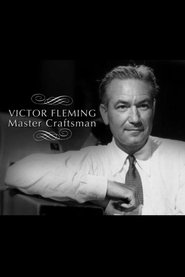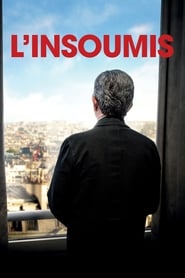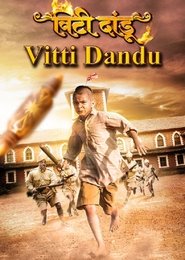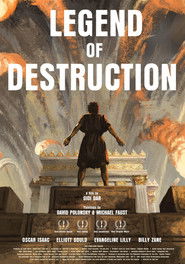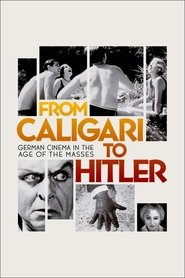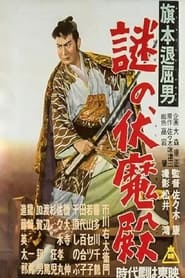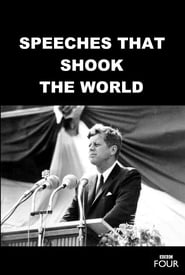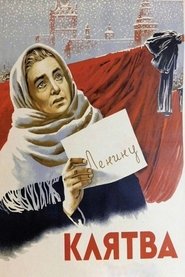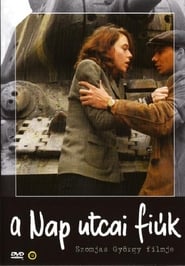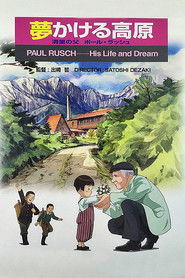Popular History Movies on Tub Tv - Page 179
-
The Knight in the White Night
2018
star 10During the Ming dynasty, Japan invaded China with an army equipped with guns. The union chief of the martial arts clans revealed in his deathbed that there is a rare book containing secrets that will make a person immune to gunfire. His last words sparked the clans to contend with each other to find it. Also in search of the book were the Japanese who dispatched a team of ninjas to go after the book. The imperial court also secretly intervened in this dispute. The emperor secretly dispatched a Kung fu Master and ordered him to find the book within seven days. -
The Brave Bunch
1970
The Brave Bunch
1970
star 5.8Two friends, a military and a journalist, after the collapse of the Albanian front, go to Macedonia to organize resistance against the Bulgarians. -
Tyrant of the Sea
1950
Tyrant of the Sea
1950
star 6In 1803, the only thing standing between Napoleon and his plan of world domination is England and the British Navy. The admiralty, learning that Napoleon has assembled an invasion fleet decides to send out one of its vessels to destroy it the French flagship under cover of fog. Forced out of retirement, ruthless, tyrannical and temperamental Captain William Blake is put in command. He wields his command with sadistic fury until an epidemic of scurvy attacks the crew and, when he refuses to go ashore for needed provision, mutiny and insubordination results...and, then, the French flagship arrives. -
Dick Cavett's Watergate
2014
star 7From 1972 to 1974, the Watergate scandal was frequently a part of “The Dick Cavett Show.” In fact, Cavett was at the forefront of national TV coverage, interviewing nearly every major Watergate figure as the crisis unfolded. With exclusive access to the archive of the show, documenting the scandal in the words of the people who lived it: from the botched burglary at the Democratic National Headquarters; to the must-see TV of the daily Congressional Watergate hearings; to the ongoing behind-the-scenes battle between the White House and “The Dick Cavett Show,” culminating with the resignation of President Nixon on August 9, 1974. Offering a unique opportunity to mark the 40th anniversary of a defining moment in American history. -
豪快三人男
1951
豪快三人男
1951
In the midst of the Siege of Osaka in the Sengoku period, a thrilling tale unfolds featuring a trio of ronin who manipulate a group of spies, a mysterious woman protecting a young lord, and the overwhelming roar of the Warring States captured on the silver screen. -
Women Is Losers
2021
Women Is Losers
2021
star 6In 1960s San Francisco, bright and talented catholic school girl Celina Guerrera survives a difficult home life by following the rules. That is until an indiscretion creates a series of devastating consequences. As Celina faces the compounded obstacles of being young and alone, she sets out to rise above the oppression of poverty and invest in a future that sets new precedents for the time. -
Mademoiselle Paradis
2017
Mademoiselle Paradis
2017
star 5.618th century Vienna. Maria Theresia von Paradis, a gifted piano player and close friend of Mozart's, lost her eye-sight as a child. Desperate to cure their talented daughter, the Paradis entrust Maria to Dr. Mesmer, a forward-thinking-physician who gives her the care and attention that she requires. With the doctor's innovative techniques of magnetism, Maria slowly recovers her sight. But this miracle comes at a price as the woman progressively starts to lose her gift for music. -
Nightwatching
2007
Nightwatching
2007
star 6.3An extravagant, exotic and moving look at Rembrandt's romantic and professional life, and the controversy he created by the identification of a murderer in the painting The Night Watch. -
Victor Fleming: Master Craftsman
2009
star 7.5A documentary on the life and career of Victor Fleming, director of such iconic movies as The Wizard of Oz and Gone with the Wind. -
L'Insoumis
2018
-
Vitti Dandu
2014
Vitti Dandu
2014
star 8In a remote village in colonial India, an old man and his grandson display strong differences in their attitudes towards the country’s British rulers. -
Legend of Destruction
2021
star 5.8What had initially started out as a Jewish revolt against the Roman occupation, quickly turned into a fierce civil war. The combination of religious messianic zeal and the friction between social classes proved disastrous and resulted in the destruction of Jerusalem and the Holy Temple. -
From Caligari to Hitler
2015
star 7.4Film journalist and critic Rüdiger Suchsland examines German cinema from 1919, when the Republic of Weimar is born, to 1933, when the Nazis come into power. (Followed by Hitler's Hollywood, 2017.) -
Bored Hatamoto: The Mysterious Demon Palace
1955
In Kyoto, a samurai named Boredom Otoko, Saotome Mondonosuke , appears and helps a woman being chased by a spy named Genshichi. Unfortunately, the woman is shot and killed. Later, Genshichi explains that the woman was a member of a band of thieves, and because she was let go once, the police officer, Genjuro Mazaki, was demoted to a desk job. Consumed by guilt, Boredom Otoko... -
Speeches That Shook the World
2013
Speech-making is the art of persuasion. Well-honed rhetoric appeals not just to the mind, but to the heart and, deeper down, in the guts. Examining the speeches that provoked radical change, surprised pundits or shocked listeners, poet Simon Armitage dissects what makes a perfect speech. Simon gets the inside story behind some of the famous speeches of the modern age, talking to Tony Blair's speechwriter, to Earl Spencer on his controversial address at his sister's funeral and the woman who challenged the rioters in Hackney. We hear how Peter Tatchell confronted the BNP, Paul Boateng on how Enoch Powell's divisive speech personally affected him as a child, and Colonel Tim Collins, whose charge was to motivate his troops on the eve of the Iraq war. Simon discusses the nuts and bolts of speech writing with Vincent Franklin, aka the blue-sky thinking guru Stuart Pearson from The Thick of It, and gets tips on powerful delivery from actor Charles Dance. -
The Vow
1946
-
The Sun Street Boys
2007
The Sun Street Boys
2007
star 6Some of the most symbolic moments of the 1956 Revolution in Hungary were the tooth-and-nail battles fought by the so-called 'Pest Lads' who dared to defy odds by taking on the panzers of one of the world's superpowers. The story begins on October 23rd, 1956 and ends on November 4th of the same year. Juli is Totya's girlfriend but also loves Gábor. Their love triangle will have to endure the trials and tribulations of these stirring times. A group of boys living in the outskirts of the capital are playing football in abandoned lot when Juli, a ticket inspector, brings news of protests breaking out in the city. Only Gábor accompanies her into town and together they become part of this historical event. At dawn, when the boys too come under fire from Soviet forces, they decide to join in the fight. -
Paul Rusch: His Life and Dream
2002
An animated film about Paul Rusch, an American missionary who helped build churches, schools, hospitals in Japan and overall helped improve life in rural areas of Japan along with soothing post-WW2 relations between the two countries.
 Netflix
Netflix
 Amazon Prime Video
Amazon Prime Video
 Apple iTunes
Apple iTunes
 Apple TV Plus
Apple TV Plus
 Disney Plus
Disney Plus
 Google Play Movies
Google Play Movies
 Paramount Plus
Paramount Plus
 Hulu
Hulu
 HBO Max
HBO Max
 YouTube
YouTube
 fuboTV
fuboTV
 Peacock
Peacock
 Peacock Premium
Peacock Premium
 Amazon Video
Amazon Video
 The Roku Channel
The Roku Channel
 AMC+
AMC+
 Kocowa
Kocowa
 Hoopla
Hoopla
 The CW
The CW
 Vudu
Vudu
 Starz
Starz
 Showtime
Showtime
 PBS
PBS
 Pantaflix
Pantaflix
 FXNow
FXNow
 Tubi TV
Tubi TV
 Kanopy
Kanopy
 Comedy Central
Comedy Central
 Crunchyroll
Crunchyroll
 Microsoft Store
Microsoft Store
 Redbox
Redbox
 Sun Nxt
Sun Nxt
 ABC
ABC
 DIRECTV
DIRECTV
 Crackle
Crackle
 Fandor
Fandor
 Plex
Plex

